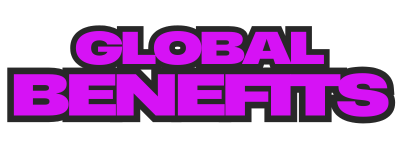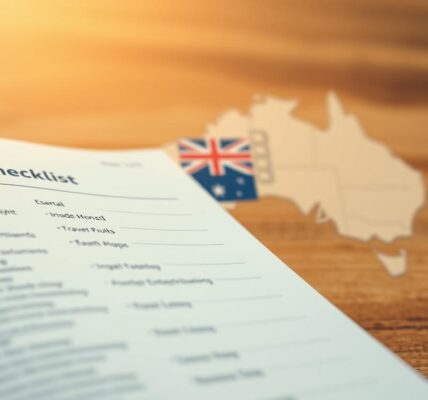How to Travel to Canada for Studies or Work: A Complete Preparation Guide
If you’re thinking about studying or working in Canada, getting ready is key.
This guide will help you understand the visa process, education, and job options. It covers everything from higher education to the documents you need.
It’s designed to make your move to Canada smooth. Each part offers tips and insights to help you settle in easily.
For more information, see the official travel site:
You will be redirected to another website
Understanding Canada’s Education and Work Landscape
Canada offers great chances for students and job seekers from around the world. Its education system is top-notch and well-respected globally. This part talks about Canada’s higher education, job options, and why Canadian qualifications are key.
Overview of Canada’s Higher Education System
Canada’s education system has many types of schools, like universities and colleges. Top universities like the University of Toronto and McGill University draw students from everywhere. Colleges focus on practical skills and technical training, helping students get jobs.
This mix makes sure graduates are ready for jobs worldwide.
Popular Work Opportunities in Canada
Canada has lots of jobs in different areas. Some fields are growing fast:
- Technology: Cities like Toronto and Vancouver have lots of tech jobs, from software to data science.
- Healthcare: Nurses and doctors are in high demand across the country.
- Engineering: The construction and energy fields need skilled engineers.
Canadian employers like people with international experience and education. So, it’s important for newcomers to look for these jobs.
The Importance of Canadian Qualifications
Getting Canadian qualifications can really help your job search. Employers often prefer local credentials because they show you know the Canadian work culture. Plus, Canadian qualifications help you fit in better and move up in your career.
Researching Study or Work Programs in Canada
Looking into study programs Canada and work visa Canada is key for those thinking of moving to this lively country. Knowing about study programs and work visas helps pick the right path. This choice can shape your experience in Canada.
Types of Study Programs Available
Canada has many educational paths for international students. Each program meets different academic and career goals. The main types of study programs are:
- Degree Programs: Offered by universities, these include bachelor’s, master’s, and doctoral degrees.
- Diploma Programs: Colleges provide these, focusing on practical skills and are shorter.
- Certificate Programs: Aim to improve specific skills or knowledge, flexible and quick.
- Co-op Programs: Mix learning with work experience, letting students apply what they learn.
Different Work Visa Options
Getting a work visa Canada is key for those wanting to work while there. There are many visa options, each with its own rules:
- Temporary Foreign Worker Program: For employers to hire foreign workers for labor needs.
- International Experience Canada (IEC): Lets young people from partner countries work and travel in Canada.
- Post-Graduation Work Permit: For international students who have finished their studies, to work in Canada for up to three years.
How to Choose the Right Program for You
Choosing the right program is vital for a fulfilling life in Canada. Prospective students and workers should think about:
- Their career goals and aspirations.
- The reputation and accreditation of educational institutions.
- The specific requirements of Canadian immigration programs.
- Opportunities for internships or work placements with chosen programs.
Preparing Financially for Your Move to Canada
Planning a move to Canada for education or work needs careful financial planning. Tuition fees in Canada vary by course and program. Cities like Toronto and Vancouver have different living costs that affect your budget.
This section offers key budgeting tips for a smooth transition. It also highlights scholarships Canada and financial aid for students.
Tuition Fees and Cost of Living
Tuition fees in Canada change based on the program and school. International students usually pay between CAD 7,000 and CAD 29,000 a year for undergrad studies. Postgraduate courses cost between CAD 13,000 and CAD 26,000 annually.
The cost of living in Canada adds to your financial planning. Monthly expenses, like housing, food, and utilities, range from CAD 800 to CAD 2,500. This is especially true in cities like Toronto and Vancouver. Knowing these costs is key to managing your finances well.
Budgeting for Your Stay
Effective budgeting is crucial for moving to Canada. Creating a realistic monthly budget helps avoid overspending. It’s important to track all expenses and focus on essentials like housing and groceries.
Having a savings plan before you go can help with initial expenses in Canada. Also, setting aside money for emergencies is wise. It acts as a safety net for unexpected costs.
Accessing Scholarships and Financial Aid
Scholarships Canada offer many chances for international students. Universities provide scholarships based on merit or need, reducing education costs. It’s important to research and apply for these scholarships.
Also, look into financial aid from organizations. They offer grants and loans to help with studying abroad. Starting to look into these options early can increase your chances of getting financial help.
Gathering Necessary Documentation for a Visa
Getting a visa to study or work in Canada needs careful planning. It’s important to know the student visa Canada requirements and the work permit documents needed. This part explains the key papers for both visas and how to translate documents Canada and notarize them.
Required Documents for Student Visa
For a student visa, you need several documents. These include:
- Letter of acceptance from a recognized Canadian educational institution
- Proof of enough money for tuition and living costs
- Health insurance details
- Passport and recent photos
- A statement of purpose for your studies
Required Documents for Work Permit
For a work permit, you need different documents. Key items are:
- A job offer letter from a Canadian employer
- Proof of work experience or qualifications
- LMIA (Labour Market Impact Assessment), if needed
- Passport and ID
- Resume and cover letter
Translating and Notarizing Documents
Many need to translate documents into English or French. Translating documents Canada is a big step. Professional translators help meet Canadian standards. After translation, you might need to notarize the documents. This makes your application more credible.
Understanding Canada’s Immigration Policies
Canada has set up detailed rules for international students and workers. It’s important to know these policies if you want to move for school or work. You need to understand study permit rules, the work permit application, and Canada’s immigration deadlines.
Overview of Study Permit Regulations
To study in Canada, you must follow certain rules. You need to show you’ve been accepted by a recognized school. You also have to prove you can afford living costs and tuition.
Applicants must also promise to leave Canada after finishing their studies. Meeting these requirements is key to a successful application.
Work Permit Application Process
The work permit application in Canada depends on your job offer and background. Foreign workers usually need a positive Labour Market Impact Assessment (LMIA) from their employer. This is unless the job is in a special exempt category.
It’s important to know the different work permits available. This includes open work permits and employer-specific ones. This helps find the right path for your situation.
Important Immigration Deadlines
Knowing Canada’s immigration deadlines is crucial. There are specific dates for study and work permits each year. The processing times can change based on how many applications there are.
Preparing early helps avoid missing these deadlines. This makes moving to Canada smoother.
Health and Travel Insurance Essentials
People moving to Canada need to know about health and travel insurance. Each province has its own healthcare plan, leading to different coverage levels. Getting health insurance in Canada is key to avoid big medical bills, especially for those new to the system.
Why Health Insurance is Crucial in Canada
Health insurance isn’t the same everywhere in Canada. Newcomers might wait a while for their provincial health plan to kick in. This wait makes getting personal health insurance from trusted providers in Canada very important. Without it, medical costs can be too high.
Options for Travel Insurance
There are many travel insurance options, like coverage for trip cancellations, lost luggage, and medical emergencies. It’s important to think about what you need before choosing. Short trips might need basic coverage, while longer stays require more comprehensive plans for ongoing health care.
Finding a Suitable Provider
Finding the right health and travel insurance in Canada can be tough. It’s important to compare different plans to find the best fit. Look at what each plan covers, its limits, and the cost. Online reviews can also help find reliable providers.
| Insurance Type | Coverage Offered | Sample Providers |
|---|---|---|
| Health Insurance | Emergency care, hospital stays, outpatient services | Manulife, Sun Life Financial |
| Travel Insurance | Trip cancellation, lost luggage, emergency medical | Travel Guard, Allianz |
| Comprehensive Plans | Includes both health and travel coverage | Blue Cross, BMO Insurance |
Finding Accommodation in Canada
Finding the right place to live in Canada is key for students and professionals from Nigeria. Knowing the different housing options helps people choose what fits their needs best.
Types of Housing Available
Canada has many places to live. Here are some common ones:
- Apartments: You can rent them in many sizes, usually in cities.
- Shared Housing: This lets you rent a room in a house, sharing spaces with others.
- Homestays: Perfect for those wanting to experience local life, living with Canadian families.
- Condos: They often have nice amenities and are popular with professionals.
Tips for Securing a Rental
Getting a rental in Canada can be tough. Here are some tips to help:
- Use online sites like Kijiji or Craigslist to find places in different areas.
- Have your documents ready, like proof of income or a reference letter, for landlords.
- Be quick when you find a good place, as they get taken fast.
- Visit places before signing anything to see if they’re right for you.
Short-term vs Long-term Options
Choosing between short-term and long-term housing is important. Short-term housing is flexible, great for when you’re first starting out. Long-term housing is cheaper and more stable.
Preparing for Life in Canada
Adapting to Canadian life means understanding many differences. Knowing about cultural differences in Canada can make the move easier. These differences include social norms, how people communicate, and daily habits. Getting used to these will help newcomers fit in better.
Cultural Differences to Consider
Canadians often say “please,” “thank you,” and “sorry.” They value politeness a lot. Knowing about personal space and how to start conversations can prevent misunderstandings.
In public, people might not talk as much as in other cultures. Understanding this helps with smoother interactions.
Understanding the Weather
Canadian weather changes a lot, from cold winters to warm summers. Different areas have their own weather, affecting how people live. In places like Alberta and Manitoba, winters are very cold.
In the summer, especially in Ontario and British Columbia, it can get very hot. Knowing about these weather changes helps with dressing and planning activities.
Language Preparation and Support
Speaking the language is key to adapting to Canada. Many immigrants use language services to improve in English or French. This is important for school and work.
Many places offer special courses for those who are not native speakers. These courses help with communication in different situations. Improving your language skills makes everyday life easier in a new place.
Packing Essentials for Your Move
Getting ready to move to Canada means thinking about what to pack. A good packing list for Canada makes the move easier. You’ll need essential documents, clothes for Canada’s weather, and tech tips for travelers.
Must-Have Documents and Items
Some documents are key for a smooth move. Here’s what you should pack:
- Valid passport
- Visa or study permit
- Acceptance letter from an educational institution
- Health insurance documents
- Academic records and transcripts
- Personal hygiene products
Clothing Considerations for Canadian Weather
Canada’s weather changes a lot. You’ll need the right clothes for comfort. Here’s what to pack:
- Layers for adaptable warmth
- Winter coats, gloves, and scarves for colder months
- Rain gear, such as waterproof jackets and boots
- Comfortable footwear for city exploration
Electronics and Technology Tips
Technology is crucial when moving to a new country. Here are some tips:
- Check the voltage and compatibility of electronics with Canadian outlets
- Consider bringing a universal adapter
- Backup important data in case of loss or damage
- Research Canadian SIM cards and mobile plans
Setting Up in Canada After Arrival
When you arrive in Canada, there are key steps to take for a smooth start. You’ll need to sort out banking, healthcare, and how to get around. These basics help you settle in and enjoy your time here.
Opening a Bank Account
Opening a bank account is one of the first things to do. You’ll need your passport, study or work permit, and proof of address. Choosing a bank that helps newcomers can save you money and stress.
Banks like TD Canada Trust, RBC, and Scotiabank are great for this. They offer services that make banking easier for those new to Canada.
Enrolling in Healthcare Services
Getting health insurance is important for your well-being. Each province has its own health system. You’ll need to sign up for provincial health insurance quickly.
You’ll need proof of where you live and ID to enroll. Knowing how to do this is key to getting the care you need in Canada.
Navigating Local Transportation Options
Getting to know how to get around is also crucial. Many cities have good public transit. This makes it easy to travel without a car.
If you do want a car, think about renting or getting a local license. Knowing your transportation options makes daily life easier and more enjoyable in Canada.
FAQ
What are the visa requirements for studying or working in Canada?
Visa needs change based on your program or job. For study permits, you need a letter from a school, proof you can pay for it, and a passport. For work permits, you must have a job in Canada and provide the right papers.
How can I prepare my itinerary for a move to Canada?
Plan your move with key dates like booking flights and finding a place to stay. Also, include time for cultural events and local sights to make your move smoother.
What are the must-have documents when packing for my move?
Don’t forget your passport, visa, school letter, and health insurance. Also, pack copies of your school records and ID for services in Canada.
How do I find a suitable place to live in Canada?
Look into different housing like shared places, student housing, or your own apartment. Use online tools and local ads. You can also ask rental agencies for help.
Should I consider travel insurance for my trip to Canada?
Yes, travel insurance is key. It covers medical costs, trip cancellations, and lost luggage. Compare plans to find the best one for you.
How can I stay updated on the weather conditions in Canada?
Use local weather apps and websites for forecasts. This helps you pack right and plan your days.
Are there scholarships available for international students in Canada?
Yes, many schools offer scholarships and financial aid to international students. Check school websites and government sites for opportunities you might qualify for.
What are some local customs I should be aware of in Canada?
Learn about local customs like formal greetings and respecting space. Being on time and understanding Canadian politeness are also important.
What is the process for applying for a work permit in Canada?
To apply for a work permit, get a job in Canada and submit your documents online or by mail. Make sure to follow the right steps for your job type.
What essential items should I include in my packing list for Canada?
Pack important documents, clothes for different weather, hygiene items, a first-aid kit, and electronics for Canadian outlets. Remember to include adapters and chargers.
Published on: 16 de April de 2025





